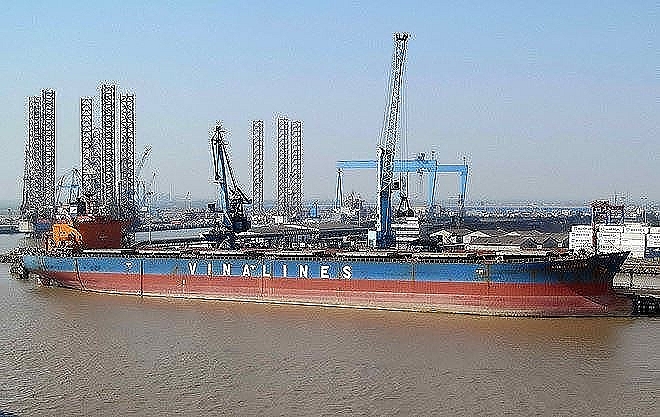Reasons behind major IPO failures
 |
| The recent IPO of Vinalines saw flat results |
Vu Duc Tien, general director of Saigon-Hanoi Securities JSC (SHS), says that there is a combination of factors behinds the firms’ failing public auctions (IPOs).
At state-owned Power Generation Corporation 3 (Genco 3) and Vietnam Rubber Group (VRG), the high state ownership ratio after the IPO was counted as one of the main reasons behind the failure, whereas at Vietnam National Shipping Lines (Vinalines), a leading shipping firm in Vietnam, the reason might have been be the company’s debt burden and its weak business performance.
| In February 2018, VRG could only sell about 101 million of the 475.1 million stocks put up for public auction, equal to 21 per cent of the stock volume put on offer. Also in February 2018, Genco 3 could only sell 7.5 million of the 267 million stocks put on offer, equal 2.8 per cent. In early September 2018, Vinalines could only sell more than 5.4 million out of the 488.8 million stocks put on offer, equal to 1.1 per cent. |
The limited turnout at the IPOs was also attributed to regulations restricting credit flows into the securities business as stated in the central bank (SBV)’s Circular 36/2014/TT-NHNN.
FPT Securities JSC claimed that with VRG, agriculture is its core business, generating 70 per cent of the company’s revenue and pre-tax profit. As VRG is a sizeable company with a fairly complex organisational structure and it operates in a risk-prone field, investors might find it less appealing to pool in capital.
Lawyer Le Net, from Ho Chi Minh City-based law firm LNT & Partners and a member of the Vietnam International Arbitration Centre (VIAC), said that the poor IPO resultsof state-owned enterprises (SOEs) were mainly due to the lack of confidence of investors in the SOEs’ business capacity.
| Firms also need to raise the stock volume to be offered at public auctions and selling to foreign strategic partners to attract investors. |
Le Net added that buyers usually want to buy a large stock volumes at a competitive price. The firms, therefore, will be more appealing to buyers if they plan to sell big stock volumes.
Besides, firms also need to raise the volume of stocks offered at public auctions or to foreign strategic partners to attract investors.
Hiring good consultancy units for the IPOs is also important.
“One must not be hasty at the IPO, as it marks a cornerstone in their development, helping firms to change their ownership structure, way for market access, as well as their business model. Without careful preparation from core business to targets and strategy, firms might fail at the IPO,” said Tien from SHS
What the stars mean:
★ Poor ★ ★ Promising ★★★ Good ★★★★ Very good ★★★★★ Exceptional
Related Contents
Latest News
More News
- Vietnam sets ambitious dairy growth targets (February 24, 2026 | 18:00)
- Masan Consumer names new deputy CEO to drive foods and beverages growth (February 23, 2026 | 20:52)
- Myriad risks ahead, but ones Vietnam can confront (February 20, 2026 | 15:02)
- Vietnam making the leap into AI and semiconductors (February 20, 2026 | 09:37)
- Funding must be activated for semiconductor success (February 20, 2026 | 09:20)
- Resilience as new benchmark for smarter infrastructure (February 19, 2026 | 20:35)
- A golden time to shine within ASEAN (February 19, 2026 | 20:22)
- Vietnam’s pivotal year for advancing sustainability (February 19, 2026 | 08:44)
- Strengthening the core role of industry and trade (February 19, 2026 | 08:35)
- Future orientations for healthcare improvements (February 19, 2026 | 08:29)

 Tag:
Tag:

























 Mobile Version
Mobile Version